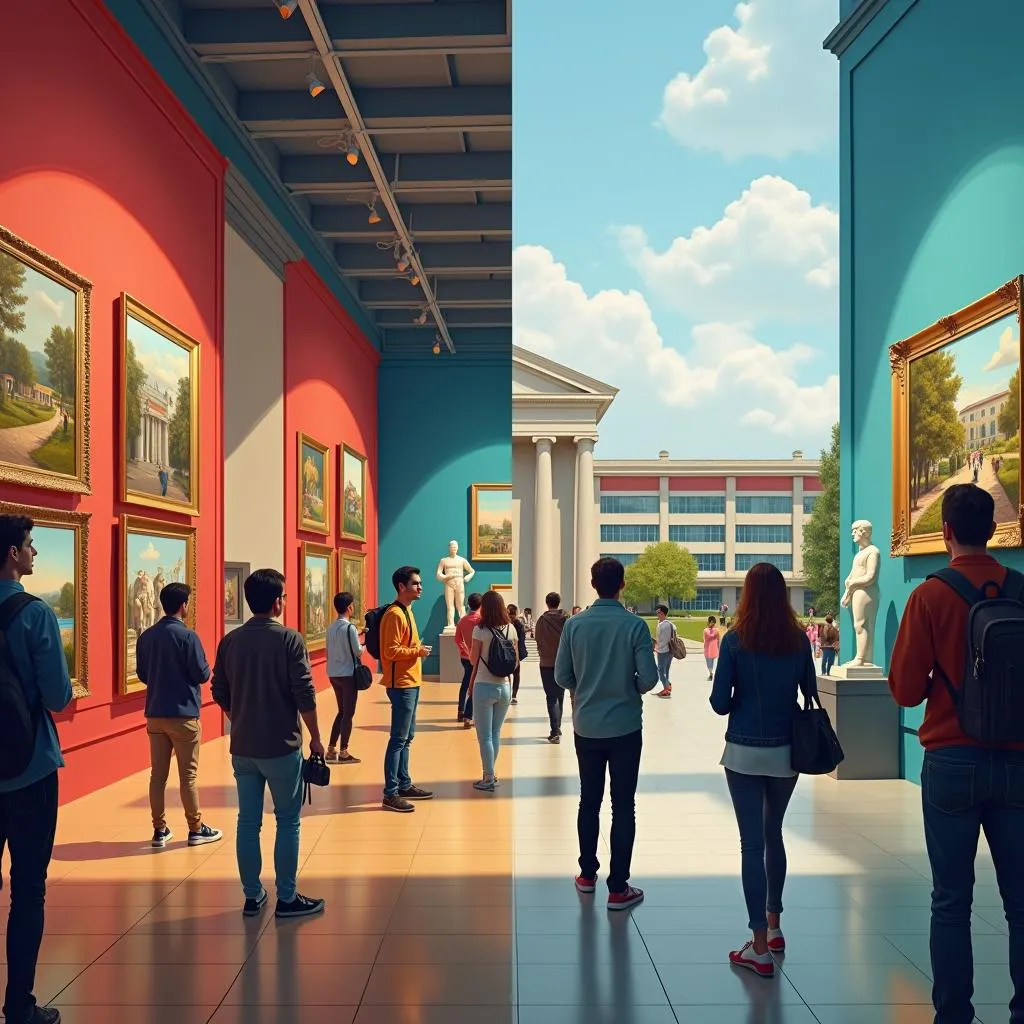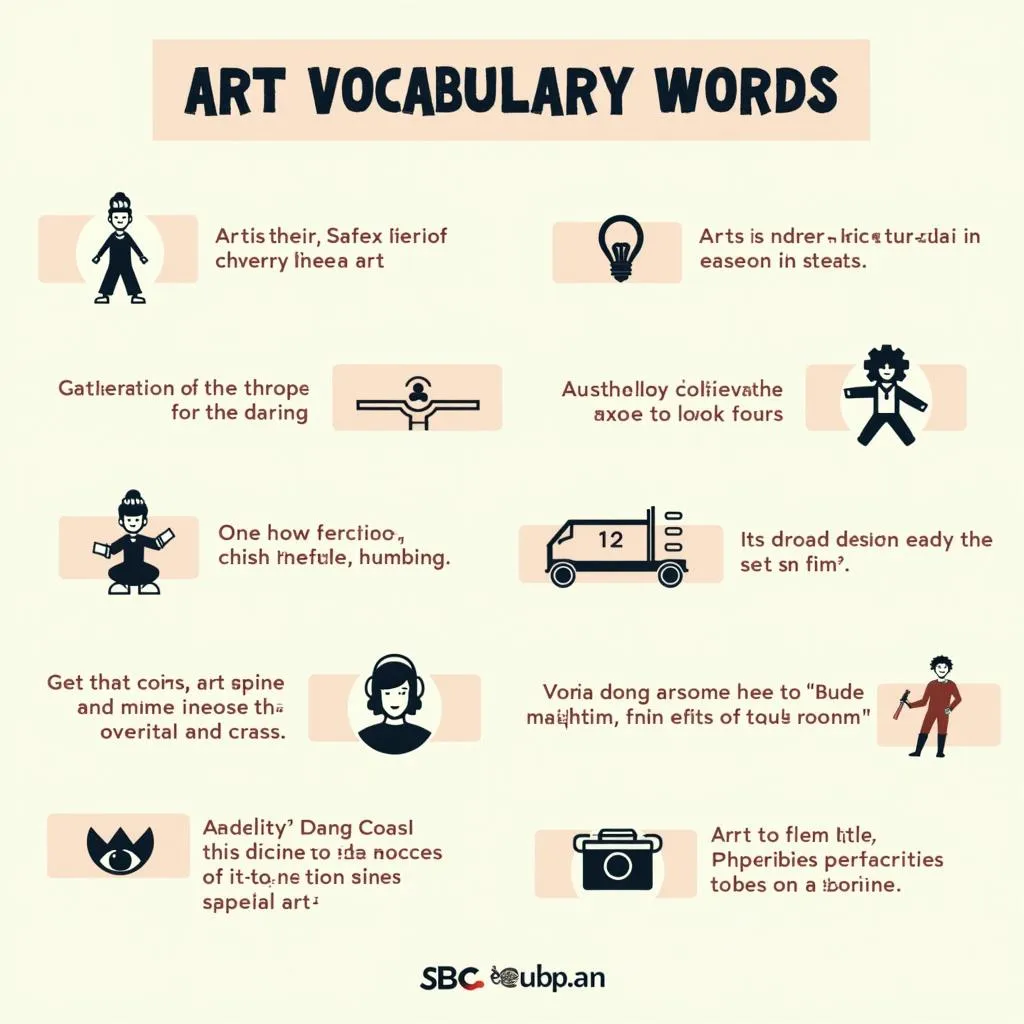The role of art in national identity and culture is a recurring theme in IELTS Writing Task 2 essays. This topic has appeared several times in past exams and is likely to continue being a popular choice for future tests. Its relevance to global cultural issues makes it an excellent subject for assessing candidates’ ability to articulate complex ideas. Let’s explore this theme through sample essays and in-depth analysis.
The role of arts and culture in promoting national identity is a multifaceted topic that allows test-takers to demonstrate their understanding of cultural heritage, globalization, and societal values. For this article, we’ll focus on a specific question that exemplifies the kind of task you might encounter in your IELTS exam:
Some people think that governments should spend money to support the arts, while others believe that this money could be better spent on other causes. Discuss both views and give your own opinion.
Analyzing the Question
This question requires candidates to:
- Discuss arguments for government funding of the arts
- Explore reasons why this money could be used for other purposes
- Present their own opinion on the matter
It’s crucial to address all parts of the question to achieve a high band score. Let’s examine three sample essays of varying quality to understand how different approaches can affect your score.
Sample Essay 1: Band 8-9 Level
In the modern world, the allocation of government funds is a contentious issue, with the arts often at the center of debate. While some argue that state support for artistic endeavors is crucial, others contend that these resources could be better utilized elsewhere. This essay will examine both perspectives before presenting my own viewpoint.
Proponents of government funding for the arts argue that cultural expression is fundamental to national identity and social cohesion. They posit that artistic initiatives foster creativity, preserve heritage, and enhance the quality of life for citizens. Moreover, a thriving arts scene can boost tourism and contribute significantly to the economy. For instance, countries like France and Italy have leveraged their rich artistic traditions to become global cultural hubs, attracting millions of visitors annually.
Conversely, those who oppose such funding assert that taxpayer money should prioritize more pressing needs such as healthcare, education, and infrastructure. They argue that the arts can be sustained through private patronage and market forces, eliminating the need for government intervention. Additionally, critics point out that state-funded art may be subject to political influence, potentially compromising artistic integrity.
In my opinion, while addressing basic societal needs is paramount, the value of art in shaping national identity and culture cannot be understated. The effects of cultural globalization on national identities make it imperative for governments to support and preserve their unique artistic heritage. However, I believe a balanced approach is necessary. Governments should allocate a reasonable portion of their budget to the arts, focusing on programs that maximize public benefit and cultural preservation. Simultaneously, they should encourage private sector involvement to create a sustainable ecosystem for artistic expression.
In conclusion, the debate over government funding for the arts reflects the complex challenge of resource allocation in modern societies. While other sectors may have more immediate tangible outcomes, the long-term benefits of a vibrant arts scene to national identity, social wellbeing, and economic growth justify continued government support, albeit with careful consideration and balanced implementation.
(Word count: 323)
 Government funding for arts debate illustration
Government funding for arts debate illustration
Sample Essay 2: Band 6-7 Level
Nowadays, there is a big discussion about whether governments should give money to support art or use it for other important things. Some people think it’s good to help artists, while others say the money can be used better. I will talk about both sides and give my opinion.
People who want the government to support art say it’s important for culture. They think art makes society better and helps people understand their history. Also, they say that art can bring tourists and make money for the country. For example, many people visit museums and galleries when they travel.
On the other hand, some people think the government should use money for more important things. They say healthcare and education need more support. These people believe that private companies or rich people can support art instead of the government. They also worry that if the government pays for art, it might try to control what artists create.
In my opinion, I think both art and other needs are important. Governments should try to support art because it’s good for culture and can make people’s lives better. But they should also make sure there’s enough money for things like hospitals and schools. Maybe they can find a way to do both by not spending too much on any one thing.
To finish, I believe that governments should give some money to art, but not forget about other important needs. They need to find a good balance to make everyone happy and keep the country’s culture strong.
(Word count: 263)
Sample Essay 3: Band 5-6 Level
Art is very important in our life. Some people think government should give money for art. Other people think government should use money for other things. I will talk about both ideas.
People who like art say it is good for country. Art make people happy and teach about culture. When tourist come, they see art and spend money. This is good for country.
But some people say art is not most important. They think government should give money for hospital and school. These things help people more than art. They say rich people can give money for art instead.
I think both ideas have good points. Art is nice and make country special. But people need good hospital and school too. Maybe government can give little money for art and more money for other things.
In the end, I think government should think carefully about how to use money. They should help art a little bit, but also make sure other important things have enough money.
(Word count: 157)
Explaining the Band Scores
Band 8-9 Essay:
- Fully addresses all parts of the task with a well-developed response
- Presents a clear position throughout the essay
- Uses a wide range of vocabulary with very natural and sophisticated control
- Uses a wide range of structures with full flexibility and accuracy
- Ideas are coherent and there is clear progression throughout
- Uses cohesive devices effectively
Band 6-7 Essay:
- Addresses all parts of the task, though some parts may be more fully covered than others
- Presents a relevant position, though conclusions may become unclear or repetitive
- Uses an adequate range of vocabulary with some errors in word choice
- Uses a mix of simple and complex sentence forms
- Arranges information coherently and there is clear overall progression
- Uses cohesive devices but not always appropriately
Band 5-6 Essay:
- Addresses the task only partially; format may be inappropriate in places
- Expresses a position but development is not always clear
- Uses limited range of vocabulary; errors in word choice may cause some difficulty for the reader
- Uses only a limited range of structures with only rare use of subordinate clauses
- Presents information with some organization but there may be lack of overall progression
- Makes inadequate, inaccurate or over-use of cohesive devices
Key Vocabulary to Remember
- Allocation (noun) – /ˌæləˈkeɪʃən/ – the act of distributing something for a particular purpose
- Contention (noun) – /kənˈtenʃən/ – heated disagreement
- Foster (verb) – /ˈfɒstə(r)/ – encourage or promote the development of something
- Patronage (noun) – /ˈpætrənɪdʒ/ – support or encouragement given by a patron
- Imperative (adjective) – /ɪmˈperətɪv/ – of vital importance; crucial
- Tangible (adjective) – /ˈtændʒəbl/ – clear and definite; real
- Vibrant (adjective) – /ˈvaɪbrənt/ – full of energy and life
- Ecosystem (noun) – /ˈiːkəʊsɪstəm/ – a complex network or interconnected system
- Integrity (noun) – /ɪnˈteɡrəti/ – the quality of being honest and having strong moral principles
- Cohesion (noun) – /kəʊˈhiːʒn/ – the action or fact of forming a united whole
 Key vocabulary for discussing cultural identity
Key vocabulary for discussing cultural identity
In conclusion, the role of art in national identity and culture is a complex and nuanced topic that frequently appears in IELTS Writing Task 2. By studying these sample essays and understanding the criteria for different band scores, you can improve your ability to craft well-structured, coherent arguments on this subject. Remember to practice writing your own essays on similar topics, such as how globalization affects youth culture or should governments support the film industry to preserve cultural identity. Feel free to share your practice essays in the comments section for feedback and further discussion.


